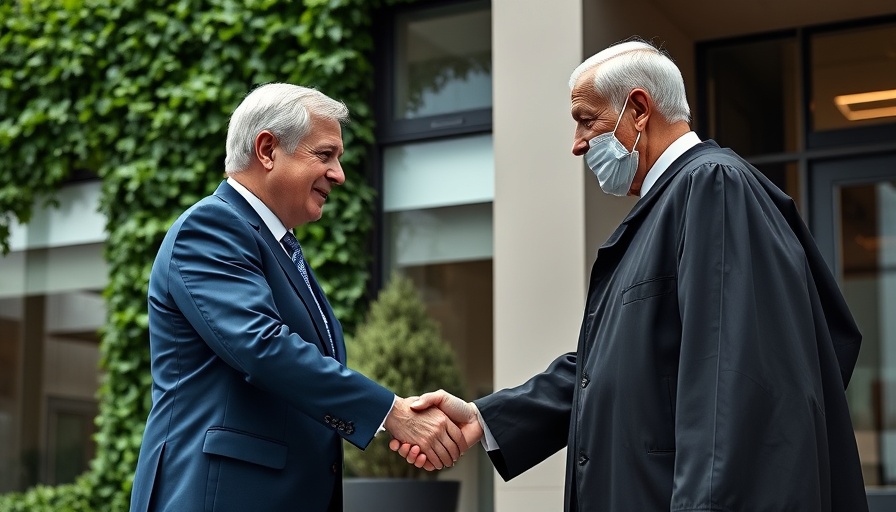
The Strengthening Ties: Germany and Ukraine Unite for Support
The recent meeting between Chancellor Friedrich Merz of Germany and President Volodymyr Zelensky of Ukraine marks a significant development in European geopolitics. With Zelensky visiting Berlin, Merz announced that Germany would enhance its military assistance to Ukraine, which is crucial as the conflict with Russia persists. This announcement underscores Germany's reinvigorated commitment to supporting Ukraine in these challenging times.
Context: Germany's Role in the Ukraine Conflict
Historically, Germany's position on military aid to Ukraine has been cautious. However, as the war enters another summer and the U.S. refines its focus, Germany stands at a crossroads in its leadership role in Europe. The announcement of $5.7 billion in aid not only signals a strategic shift but also reaffirms Berlin’s central role in supporting Kyiv amidst growing trepidations surrounding NATO's cohesion.
Implications of Enhanced Support
The promise of increased funding for weapons production—including long-range systems—indicates a transformative approach from Germany. Given the ongoing arms race between Ukraine and Russia as each side seeks to bolster their defenses, this full-throated support provides Ukraine with critical resources. The specifics also highlight a concerted effort to facilitate improved military capabilities, such as air-defense systems and satellite communications, enhancing Ukraine's battlefield effectiveness.
The Changing Landscape of European Security
As discussions around NATO evolve, the support from Germany could signal a redefinition of European security frameworks. The move to strengthen ties with Ukraine while backing its defenses ties into a broader narrative of increased European responsibility in defense matters, especially as U.S. involvement comes under scrutiny. Leaders like Merz are increasingly seen as pivotal in ensuring that Europe's collective defense efforts remain robust.
Future Predictions: What Lies Ahead?
The ongoing conflict has seen Russia strategically bolstering its military positions, suggesting that the economic and military support from Germany will be essential for Ukraine. This increased resource flow raises expectations for future engagements between Berlin and Kyiv, possibly leading to deeper cooperation in defense and security matters. Observers predict that if Germany continues on this path, it could become a cornerstone of not only Ukraine’s defense strategy but also the overall security architecture of Europe.
Importance of International Unity
Zelensky's visit illustrates Ukraine's ongoing need for European solidarity as it navigates the complexities of war. This unity is critical not only for resources but also for political and diplomatic backing on the global stage. A collective approach among European nations can reinforce Ukraine’s position and push for effective negotiations that may one day lead to a resolution of the conflict.
Actionable Insights for Readers
For those invested in global politics, the developments in Germany’s support for Ukraine are crucial. It highlights the need to advocate for continued international support and awareness around the implications of military aid. Understanding these dynamics is essential not just for students of history and politics but also for those who engage in humanitarian efforts in affected regions.
Conclusion
The commitment from Germany represents a pivotal moment in the ongoing narrative of the Ukraine conflict. As Europe faces challenges to its security framework, the actions taken today will shape the future geopolitical landscape. Enhanced military capabilities for Ukraine may not simply influence battlefield outcomes but could redefine the role of European powers in ensuring collective security commitments in the face of Russian aggression. Keeping abreast of these developments is valuable for anyone concerned about international relations and global stability.
 Add Row
Add Row  Add
Add 




 Add Row
Add Row  Add
Add 

Write A Comment